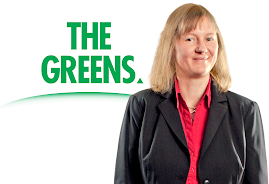Desalination debacle – Victoria’s Unsustainable Water FutureBrumby’s lack of water vision condemned;
“The Brumby government is setting us up for an unsustainable water future, said Samantha Dunn, Greens candidate for Eastern Victoria after hearing Neil Rankine Vice President of Watershed Victoria speak at the recent Country Greens Network forum in Leongatha. Neil was speaking on the proposed desalination plant in Wonthaggi.
“Mr Brumby has turned his back on sustainable, energy efficient water solutions for Melbourne, said Samantha, “The focus should be on water tanks, stormwater capture and recycling for our city.
Neil Rankine said “At the last election we were promised a sustainable water future, involving efficiencies, the closure of polluting ocean outfalls, and a partnering with the community to achieve desirable outcomes.
“We now find our Government is abandoning huge quantities of recycled water, they are spending hundreds of millions of dollars to produce class-A water at the Eastern Treatment Plant, only to pump it out to sea at an existing outfall.
“Worse still, we are to pay through our water bills for a $4.8 billion desalination factory, which will create yet another polluting outfall at Wonthaggi.
Samantha said, “Melbournians have shown their willingness to change their habits and use less water but the Brumby government is ignoring the community’s conservation of water.“With the desalination plant churning out 150 gigalitres (150 billion litres) of water a year, the government has signalled that there will no longer be a need for water conservation, leaving Melburnians with the most energy intensive, environmentally unfriendly and expensive water conceivable.”
After winning the election in 2006 our Government has not worked with the people of Victoria in coming to its current position on water supply, said Neil, “Will they now at least give the people some confidence in the integrity of their chosen options?
Watershed Victoria is calling for a transparent environmental monitoring program, with the ability for public scrutiny and input, prior to contracts being signed off by Government.
Neil said, “Ongoing and transparent monitoring, of this project, and Government’s actions to implement better water supply options into the future, will be essential to restore the people’s confidence in our democracy.”




